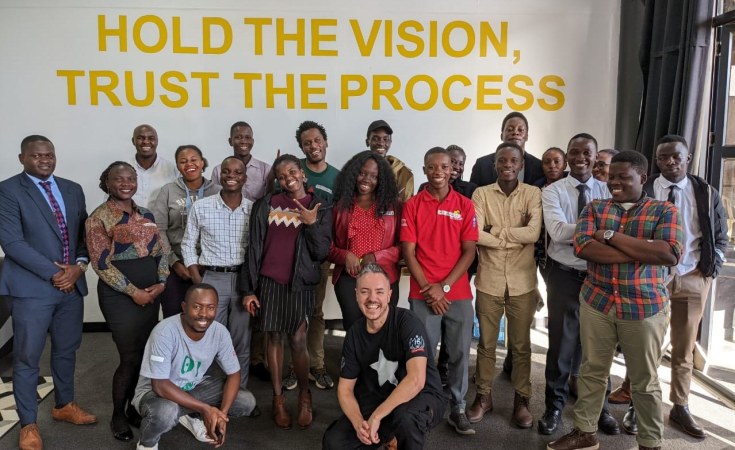Harare — Youth engagement in government and participation in community development activities can be beneficial for both the community and youth development as young people can bring innovation, creativity and energy. When young people are involved their perspectives and voices are heard and considered as part of the local decision-making process. This, in turn, promotes excellent results among young people. It teaches active citizenship skills such as understanding how decisions are made and organising, planning, and communicating.
African states have however failed to effectively engage youth in governance and decision-making processes, according to an Afrobarometer report. The report suggests that youth could find ways - including voting - to ensure their voices are heard in the design of policies and programmes to overcome the hurdles they face.
According to Afrobarometer, young people are less likely to be politically engaged than older citizens. The largest gaps are observed in the most fundamental form of voice and participation: voting. Youth are 20 points less likely to vote than those 56 years and above. But they also lag behind in most other types of community participation and contact with leaders.
In Africa, issues include a dearth of participation space, a lack of cooperation among youth organisations, and poor discipline and leadership in youth organisations. In Zimbabwe, Open Parly, a digital media platform by Magamba Network, launched in 2015 to address some of these challenges.
The initiative, according to Magamba Network, promotes a new generation of young citizen journalists giving young people real-time access to Parliament and local authority news in a simplified manner, while increasing access to alternative media platforms by the youth for engagement in national processes.
"Open Parly has been more than an experience, its provided avenues to be more engaged and involved in governance processes in the country, whilst also learning creative ways to engage with target audiences," says one of the Zambian participants, Mutinta Nanchengwa.
She says she joined Open Parly ZED after they hosted a boot camp in conjunction with Magamba Network, that she attended. It was a great way for her to continue to grow her interest in advocacy and accountability in Zambia. She said the bootcamp was incredibly effective and resourceful and that it had employed a variety of training methods.
"There has always been a gap between the way that governance and parliamentary processes work, and how this information is disseminated to the general population, particularly the youth. Open Parly ZED helps to bridge this gap, and demystify the governance of this country. When young people are well informed, they are able to make better decisions for themselves and the future of the country," says Nanchengwa.
Nyasha Mukapiko, Magamba Africa Project Officer says necessity led to the invention of the project.
"As you are aware that we only had one television station in Zimbabwe. And back then, ZBC was not doing enough in terms of giving access to the business of the parliament. So our idea was, what if we can come up with something that covers parliament on a daily basis? Committee meetings, public hearings, and also question and answer sessions and the other stuff that happens in Parliament," says Mukapiko.
"We started live tweeting, then after doing live tweeting, we then introduced the Facebook live streaming. The platforms started gaining a large number of followers and to date, our Open Parly platforms has since grown into big digital media platforms with a following on Twitter, over 220,000 followers, and also more than 100,000 followers on Facebook," added Mukapiko.
It also creates engagement between young people and decision-makers by providing real-time access into the corridors of parliament through live tweeting and coverage.
"Monitoring parliamentary proceedings has been useful, however, there is need to move beyond just monitoring and begin to focus on holding the MPs and other policy makers accountable for the promises and policies that they make. There is also need for parliamentary committees to be open to accepting submissions from the general public, especially youths, so that they may be more involved in governance processes," says Nanchengwa.
In 2019 Open Parly ZW started expanding to local authorities with the launching of hyper-local platforms that include Open Council Harare, Masvingo, Marondera, Mutare, Kariba and Bulawayo.
Open Parly has also expanded on the African continent through the launch of Open Parly Somalia, Zambia, Nigeria and Uganda.
Magamba Network, in collaboration with Ugandan based organisations, WizArts Foundation and Centre for Policy Analysis (CEPA), launched Open Parly Uganda in March, 2023. The launch started off with a two-day boot-camp that was held in Kampala which attracted young people from diverse backgrounds who were taken through an intensive training on parliamentary processes, content creation and participatory democracy principles.
This they say was to ensure that they play a role in closing the gap that is usually left by mainstream media in terms of parliament reporting as well as to help drive young people's interest and participation in progressive political issues.
Diana Kabenge, the Executive Director of WizArts Foundation, endorsed the initiative, saying, "the youth comprise 78% of Uganda's population and there has been apathy from the youth in participating in democratic processes and good governance. We therefore believe that having them participate in parliamentary processes through the Open Parly initiative is a step in the right direction."
They are looking forward to launching Open Parly Malawi in 2024.
Open Parly has been rolling out rural digital kiosks in marginalised communities increasing access to information in rural areas where 67% of Zimbabwe's population live. Their platforms have impressions of more than 3 million people monthly and 100 million annually.
The project won a World Summit Youth Award in 2013 in Sri Lanka for its pioneering work in citizen journalism.


